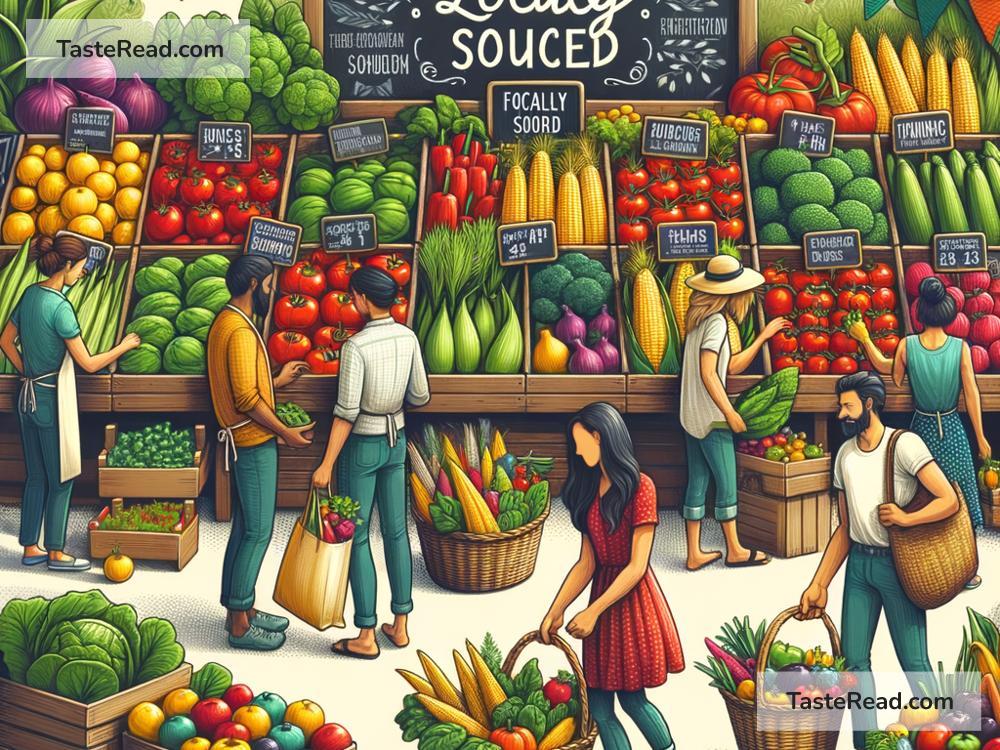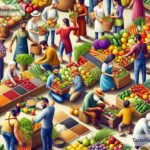The Impact of Food Sustainability on Nutrition
In recent years, there has been growing concern about how the food we produce and consume affects our planet and our health. This brings us to an important topic: food sustainability. Simply put, food sustainability is about producing food in ways that are good for the planet, fair to farmers, and healthy for people. But what does food sustainability mean for our nutrition? Let’s explore how sustainable food practices impact what we eat and how they ultimately affect our health.
What is Food Sustainability?
Food sustainability aims to ensure that everyone can access nutritious food while protecting the environment. This involves growing, processing, and distributing food in ways that minimize waste and damage to nature. For example, sustainable practices focus on reducing greenhouse gas emissions, using less water for farming, and avoiding overfishing or deforestation.
At its core, food sustainability is about creating a balance—meeting the needs of today without compromising the ability of future generations to meet their own needs.
How Does Food Sustainability Influence Nutrition?
Sustainable food choices often go hand in hand with healthier eating habits. The following aspects show how food sustainability positively impacts nutrition:
1. More Access to Fresh, Whole Foods
Sustainable farming promotes growing local and seasonal crops, which are fresher and more nutritious. For example, eating fruits and vegetables that are locally grown reduces storage and transportation time. This means that food retains more of its nutrients by the time it reaches your plate. Local farms that use sustainable practices often avoid using harmful pesticides and chemicals, which can be better for your health.
2. Better Quality Protein Sources
Sustainable food systems encourage people to consume ethically sourced protein. For instance, plant-based proteins like beans, lentils, and nuts are often promoted because they have a smaller environmental impact compared to meat. While animal-based proteins, like beef or pork, are nutritious, producing them on a large scale can harm the environment. Opting for sustainably raised meat, eggs, or fish can provide health benefits without causing unnecessary harm to ecosystems.
3. Reduction in Processed Foods
Many sustainable diets, such as the Mediterranean or plant-based diet, focus on whole foods instead of processed ones. Processed foods are often high in sugar, salt, and unhealthy fats, which can lead to chronic health issues like diabetes and heart disease. By choosing sustainable options, people are encouraged to eat more wholesome and nutrient-rich foods like vegetables, fruits, grains, and nuts.
4. Understanding the Role of Biodiversity
Biodiversity means having different types of plants and animals in our food system. Sustainable farming emphasizes biodiversity by growing a variety of crops instead of relying on just one or two. This diversity means that people have access to a wider range of nutrients, vitamins, and minerals. For example, eating varied crops like spinach, quinoa, sweet potatoes, and millet provides a more balanced diet than focusing only on wheat or rice.
Food Sustainability Helps Reduce Food Waste
One major reason sustainable practices are important for nutrition is that they help reduce food waste. Did you know that about one-third of all food produced globally ends up being wasted? This is not just bad for the environment but also for our health. For example, many perfectly edible fruits or vegetables are thrown away simply because they look “ugly,” even though they have the same nutrients as the prettier ones. Addressing food waste allows us to make more food available to people who need it, ensuring they have access to balanced diets.
Challenges in Sustainable Food and Nutrition
While food sustainability has clear advantages, it also comes with challenges. For example, sustainable products can sometimes be more expensive, making it harder for people with limited incomes to access them. Additionally, there needs to be more education about sustainable eating habits. Many people may not know how to cook plant-based meals or choose local, seasonal foods.
Another challenge is that large-scale farming often favors monoculture, where farmers grow only one crop (like wheat, corn, or soybeans). This can be cheaper but harms soil health over time and produces less variety in our diets. To address these challenges, governments, companies, and individuals must work together to make sustainable choices affordable and accessible.
How Can You Eat Sustainably and Stay Nutritionally Healthy?
The good news is that you don’t have to make big changes to eat sustainably and improve your nutrition. Small steps can create a big impact:
- Buy Local and Seasonal Food: Shopping for food at farmer’s markets or stores that promote local produce helps support sustainable practices and ensures your food is fresh.
- Eat More Plant-Based Meals: Incorporate beans, lentils, vegetables, and grains into your diet for a sustainable and nutritious balance.
- Reduce Waste: Plan meals to avoid throwing away leftovers, and store food carefully to make it last longer.
- Support Sustainable Brands: Look for certifications like “Fair Trade” or “Organic,” which often indicate environmentally and ethically responsible farming practices.
Conclusion: A Healthier You and a Healthier Planet
Food sustainability is not just about saving the planet—it’s also about taking care of our health. By choosing sustainable food options, we can enjoy fresher, more nutritious meals while protecting ecosystems for future generations. The connection between food sustainability and nutrition is clear: when we care for the earth, it provides us with healthier, better-quality food.
So, the next time you decide what’s for dinner, think about how your choices can affect both your body and the world around you. Small but thoughtful decisions can lead to big changes for a healthier, more sustainable future.


